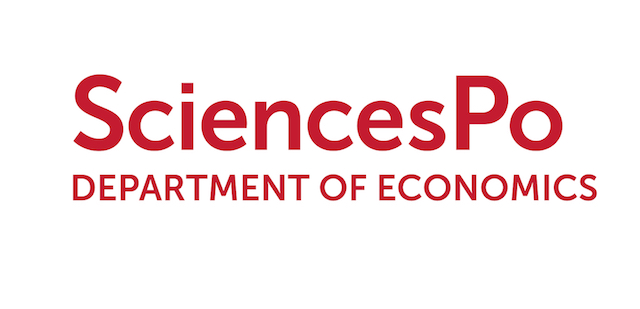Introduction to Econometrics with R
2020-11-03
Syllabus

Welcome to Introductory Econometrics for 2nd year undergraduates at ScPo! On this page we outline the course and present the Syllabus. 2018/2019 was the first time that we taught this course in this format, so we are in year 3 now.
Objective
We teach this course split over two levels and two semesters: Introduction and Advanced. Having taken the Introduction course is a requirement to enroll in Advanced.
The Introduction course aims to teach you the basics of data analysis needed in a Social Sciences oriented University like SciencesPo. We purposefully start at a level that assumes no prior knowledge about statistics whatsoever. Our objective is to have you understand and be able to interpret linear regression analysis. We will not rely on maths and statistics, but practical learning in order to teach the main concepts. We also add the principal elements of causal inference, such that you will start being able to distinguish between simple statistical correlation and actual causation.
The Advanced course will continue in the semester after you have taken the Introduction course, following the same philosophie of staying away as much as possible from formal derivations and proofs. We treat important further classical econometric topics like Instrumental Variables, Panel Data, Discrete Dependent Variables. Towards the end of the course we reserve a good amount of time to give an oveview of Statistical Learning. We will study and apply important concepts from machine learning in an accessible way.
Course Structure
Either course is taught in several different groups across various campuses of SciencesPo. All groups will go over the same material, do the same exercises, and will have the same assessments.
Groups meet once per week for 2 hours. The main purpose of the weekly meetings is to clarify any questions, and to work together through tutorials. The little theory we need will be covered in this book, and you are expected to read through this in your own time before coming to class.
Introduction Course: Syllabus and Requirements
Requirements
The only requirement is that you bring your own personal computer to each session. We will be using the free statistical computing language R very intensively. Before coming to the first session, please install R and RStudio as explained at the beginning of chapter 1.
Syllabus
- Introduction: Chapters 1.1 and 1.2 from this book, Introduction from Mastering Metrics, The Credibility Revolution in Empirical Economics by Angrist and Pischke (JEP 2010)
- Summarizing, Visualizing and Tidying Data: Chapter 2 of this book, Chapters 2 and 3 from ModernDive
- Continues with previous session.
- Simple Linear Regression: Chapter 3 of this book, Chapter 5 of ModernDive
- Introduction to Causality: Chapter 7 of this book, Chapter 1 Mastering Metrics, Potential Outcomes Model in Causal Inerence, The Mixtape by Scott Cunningham
- Multiple Linear Regression: Chapter 4
- Sampling: Chapter 7 of ModernDive
- Confidence Interval and Hypothesis Testing: Chapters 8 and 9 of ModernDive
- Regression Inference: Chapter 6 of this book, Chapter 10 of ModernDive
- Differences-in-Differences: Chapter 5 of Mastering Metrics, Card and Krueger (AER 1994)
- Regression Discontinuity: Chapter 4 of Mastering Metrics, Carpenter and Dobkin (AEJ, Applied, 2009), Imbens and Lemieux (Journal of Econometrics, 2008), Lee and Lemieux (JEL 2010)
- Review Session
Advanced Course: Syllabus and Requirements
Requirements
You must have taken the Intro course before, or a course with similar syllabus at your home institution.
Syllabus
- Logistics, Organisation, Recap 1 from Intro Course
- Recap 2 from Intro Course
- Intro to
data.table - Instrumental Variables and Causality 1
- Instrumental Variables and Causality 2
- Instrumental Variables and Causality 3
- Panel Data: What, How and Why?
- Discrete Outcomes: Logit and Probit
- Intro to Statistical Learning 1: Taxonomy and Intro to Machine Learning
- Intro to Statistical Learning 2: Model Validation
- Intro to Statistical Learning 3: Unsupervised Learning Session 11: Recap / Buffer 1 Session 11: Recap / Buffer 2
Slides
Introductory Level
There are slides for each book chapter at a dedicated website.
Advanced Level
We host slides here.
This Book and Other Material
What you are looking at is an online textbook. You can therefore look at it in your browser (as you are doing just now), on your mobile phone or tablet, but you can also download it as a pdf file or as an epub file for your ebook-reader. We don’t have any ambition to actually produce and publish a book for now, so you should just see this as a way to disseminate our lecture notes to you.
The second part of course material next to the book is an extensive suite of tutorials and interactive demonstrations, which are all contained in the R package which is associated to this book and which you will install in chapter 1.
Open Source
The book and all other content for this course are hosted under an open source license on github. You can contribute to the book by just clicking on the appropriate edit symbol in the top bar of this page. Other teachers who want to use our material can freely do so, observing the terms of the license on the github repository.
Assessments
We will assess participation in class, quizzes on moodle and take home exams.
Communication
We will communicate exclusively on our slack group. You will get an invitation email to join from your instructor in due course.